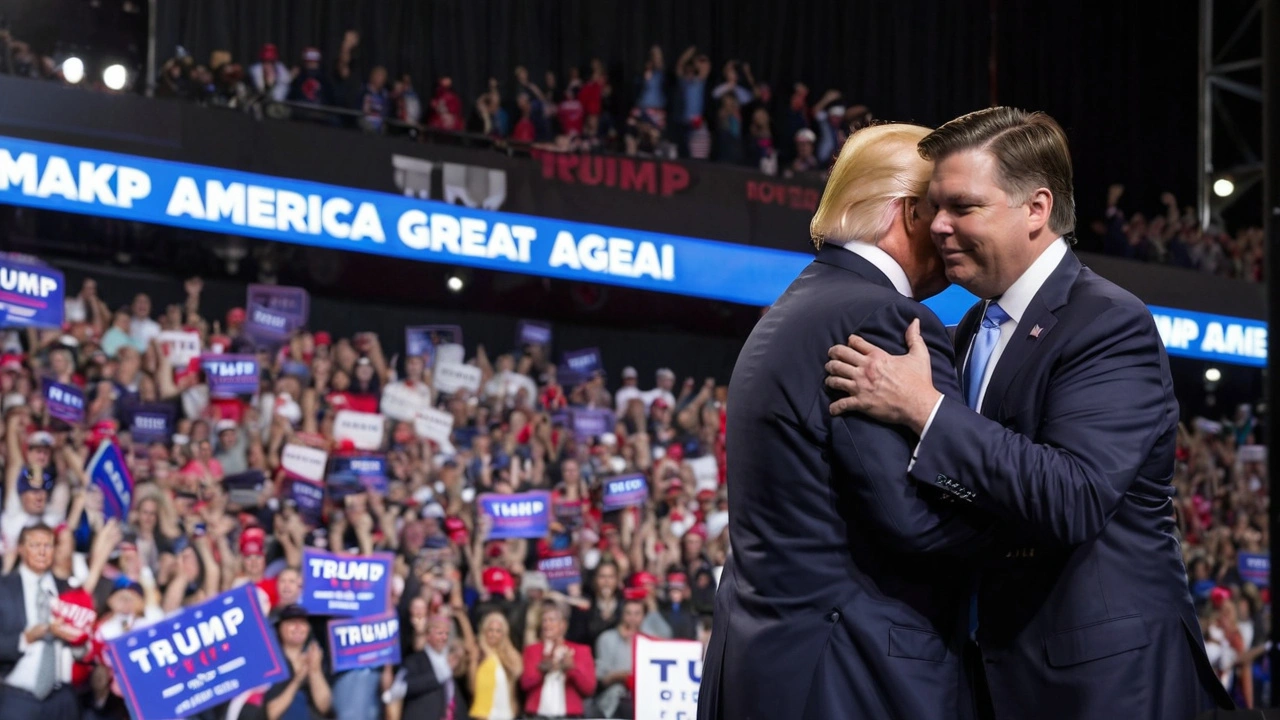JD Vance Joins Trump Ticket: Striking a New Direction for the GOP
In a move that has sent ripples through the political landscape, former President Donald Trump has named JD Vance as his running mate. This decision not only marks Vance’s dramatic political transformation but also signifies a profound shift in the Republican Party's ideological stance. The man who once unabashedly criticized Trump during the 2016 election now stands beside him, ready to carry the mantle into what could be another tumultuous election cycle.
The Vance Transformation
JD Vance, author of the celebrated memoir 'Hillbilly Elegy', initially gained national attention through his scathing critiques of Trump and the direction he believed Trump was pulling the GOP. In 2016, Vance did not mince words, calling Trump a cultural and political disaster. This image of Vance as a staunch opponent of Trump made his eventual shift all the more astonishing to political observers on both sides of the aisle.
Over the years, Vance's rhetoric evolved, aligning more closely with Trumpian ideology. By the time he threw his hat into the Ohio Senate race, Vance was an unabashed supporter of Trump's vision, echoing the former president's hardline stances on immigration and economic policy. Vance’s about-face exemplifies a broader trend within the Republican Party, where previous critiques from within have morphed into fervent endorsements, redefining what it means to be a conservative in today’s political environment.
The End of Traditional Conservatism?
Vance’s selection as Trump’s running mate is more than just a personal political evolution—it is seen by many as the culmination of the Republican Party’s ideological metamorphosis. Traditional conservative values, such as limited government, fiscal responsibility, and a strong adherence to democratic norms, appear to be taking a backseat. What the party once stood for has been largely supplanted by the priorities and preferences of Donald Trump.
Politicians such as Elise Stefanik and Marco Rubio mirror Vance’s transformation. Stefanik, who initially positioned herself as a moderate, has become one of Trump’s most ardent defenders. Rubio, once a vocal critic during his own presidential run, has also realigned himself with Trump’s policies and rhetoric. This trend reflects a broader shift within the Republican Party—one where past principles are overshadowed by the need to align with Trump’s influence to maintain political relevance and power.
Power Dynamics and Executive Overreach
One of the starkest examples of this shift is the party’s newfound willingness to embrace executive overreach. Traditionally, Republicans have championed the notion of a limited executive branch, vigilant against the expansion of presidential powers. However, under Trump’s influence, there has been a noticeable turn towards supporting actions that push the boundaries of executive authority.
Vance, like many in the GOP, now openly backs strong executive actions that were once anathema to the party’s core principles. This shift is indicative of how deeply Trump’s ideology has penetrated the Republican Party, leading many to question the future of conservatism as it has been traditionally understood. The new alignment sees the party more willing to challenge democratic norms if it means consolidating power and achieving political goals.
The New Republican Agenda
With Vance on the ticket, the Republican Party is poised to further solidify its transition into a party that prioritizes Trump’s agenda. This agenda often includes stringent immigration policies, a hardline stance on trade, and an unapologetic approach to political discourse that breaks from the diplomatic traditions of the past. These policy shifts have not only changed the Republican platform but also reshaped the party's identity on the national stage.
This new direction is not just about policy but also about political survival and dominance. Aligning with Trump has become a strategic necessity for many Republican politicians. As the party moves forward, it is clear that support for Trump and his vision has become a litmus test for political viability within the Republican ranks.
A Divided Response
The reaction to Vance’s selection has been mixed. Among Trump’s base, it has been largely hailed as a brilliant strategic move that strengthens the ticket and energizes the voter base. However, traditional conservatives and moderates within the GOP have expressed concerns, fearing that the party they once knew is slipping away. This internal conflict highlights the ongoing struggle within the Republican Party—between the old guard who cling to traditional values and the new wave embracing Trump’s redefined conservatism.
Many political analysts foresee a continued fracturing within the party, particularly if Trump and Vance succeed in their bid for the White House. The coming years could see intensified debates over the GOP's identity and future direction, with significant implications for American politics at large.
The Future of the GOP
With JD Vance as his running mate, Donald Trump has taken a definitive step in completing the Republican Party’s transformation. The GOP now faces a crossroads: continue down the path defined by Trump’s overarching influence or attempt to reclaim the traditional conservatism that defined it for decades. This decision will undoubtedly shape the political landscape for years to come, as the party grapples with its identity and the direction it wishes to take in future political battles.
As the Republican base prepares for another rigorous election cycle, the dynamics at play will be closely watched by political observers. JD Vance’s journey from critic to ally exemplifies a broader theme within the GOP, one that underscores the massive ideological shifts experienced in recent years. The outcome of this transformation, and the subsequent election, will likely define the next chapter in American political history, for better or worse.
